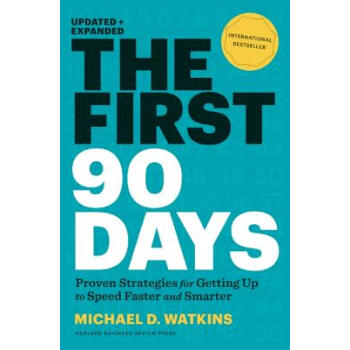![Lord of the Flies[蝇王] 英文原版 [平装]](https://pic.windowsfront.com/19280097/rBEQYVGulPQIAAAAAASnjwUeBJkAACwVgEeiVEABKen195.jpg)

具体描述
内容简介
Lord of the Flies remains as provocative today as when it was first published in 1954, igniting passionate debate with its startling, brutal portrait of human nature. Though critically acclaimed, it was largely ignored upon its initial publication. Yet soon it became a cult favorite among both students and literary critics who compared it to J.D. Salinger's The Catcher in the Rye in its influence on modern thought and literature.Labeled a parable, an allegory, a myth, a morality tale, a parody, a political treatise, even a vision of the apocalypse, Lord of the Flies has established itself as a true classic.
作者简介
Born in Cornwall, England, in 1911 and educated at Oxford University, William Gerald Golding's first book, Poems, was published in 1935. Following a stint in the Royal Navy and other diversions during and after World War II, Golding wrote Lord of the Flies while teaching school. This was the first of several novels including Pincher Martin, Free Fall, and The Inheritors and a play, The Brass Butterfly, which led to his being awarded the Nobel Prize for Literature in 1983.精彩书评
"The most influential novel...since Salinger's Catcher in the Rye."-- Time
"Lord of the Flies [is my selection for The Book That Changed My Life] because it is both a story with a message and because it is a great tale of adventure. My advice about reading is to do a lot of it."
-- Stephen King, for the National Book Foundation, The Book That Changed My Life
"[T]his brilliant work is a frightening parody on man's return (in a few weeks) to that state of darkness from which it took him thousands of years to emerge. Fully to succeed, a fantasy must approach very close to reality. Lord of the Flies does. It must also be superbly written. It is."
-- The New York Times Book Review
"[S]parely and elegantly written...Lord of the Flies is a grim anti-pastoral in which adults are disguised as children who replicate the worst of their elders' heritage of ignorance, violence, and warfare."
-- Joyce Carol Oates, New York Review of Books
精彩书摘
THE SOUND OF THE SHELLTHE BOY WITH FAIR HAIR LOWERED HIMSELF down the last few feet of rock and began to pick his way toward the lagoon. Though he had taken off his school sweater and trailed it now from one hand, his grey shirt stuck to him and his hair was plastered to his forehead. All round him the long scar smashed into the jungle was a bath of heat. He was clambering heavily among the creepers and broken trunks when a bird, a vision of red and yellow, flashed upwards with a witchlike cry; and this cry was echoed by another.
"Hi!" it said. "Wait a minute!"
The undergrowth at the side of the scar was shaken and a multitude of raindrops fell pattering.
"Wait a minute," the voice said. "I got caught up."
The fair boy stopped and jerked his stockings with an automatic gesture that made the jungle seem for a moment like the Home Counties.
The voice spoke again.
"I can't hardly move with all these creeper things."
The owner of the voice came backing out of the undergrowth so that twigs scratched on a greasy wind-breaker. The naked crooks of his knees were plump, caught and scratched by thorns. He bent down, removed the thorns carefully, and turned around. He was shorter than the fair boy and very fat. He came forward, searching out safe lodgments for his feet, and then looked up through thick spectacles.
"Where's the man with the megaphone?"
The fair boy shook his head.
"This is an island. At least I think it's an island. That's a reef out in the sea. Perhaps there aren't any grownups anywhere."
The fat boy looked startled.
"There was that pilot. But he wasn't in the passenger cabin, he was up in front."
The fair boy was peering at the reef through screwed-up eyes.
"All them other kids," the fat boy went on. "Some of them must have got out. They must have, mustn't they?"
The fair boy began to pick his way as casually as possible toward the water. He tried to be offhand and not too obviously uninterested, but the fat boy hurried after him.
"Aren't there any grownups at all?"
"I don't think so."
The fair boy said this solemnly; but then the delight of a realized ambition overcame him. In the middle of the scar he stood on his head and grinned at the reversed fat boy.
"No grownups!"
The fat boy thought for a moment.
"That pilot."
The fair boy allowed his feet to come down and sat on the steamy earth.
"He must have flown off after he dropped us. He couldn't land here. Not in a place with wheels."
"We was attacked!"
"He'll be back all right."
The fat boy shook his head.
"When we was coming down I looked through one of them windows. I saw the other part of the plane. There were flames coming out of it."
He looked up and down the scar.
"And this is what the cabin done."
The fair boy reached out and touched the jagged end of a trunk. For a moment he looked interested.
"What happened to it?" he asked. "Where's it got to now?"
"That storm dragged it out to sea. It wasn't half dangerous with all them tree trunks falling. There must have been some kids still in it."
He hesitated for a moment, then spoke again.
"What's your name?"
"Ralph."
The fat boy waited to be asked his name in turn but this proffer of acquaintance was not made; the fair boy called Ralph smiled vaguely, stood up, and began to make his way once more toward the lagoon. The fat boy hung steadily at his shoulder.
"I expect there's a lot more of us scattered about. You haven't seen any others, have you?"
Ralph shook his head and increased his speed. Then he tripped over a branch and came down with a crash.
The fat boy stood by him, breathing hard.
"My auntie told me not to run," he explained, "on account of my asthma."
"Ass-mar?"
"That's right. Can't catch my breath. I was the only boy in our school what had asthma," said the fat boy with a touch of pride. "And I've been wearing specs since I was three."
He took off his glasses and held them out to Ralph, blinking and smiling, and then started to wipe them against his grubby wind-breaker. An expression of pain and inward concentration altered the pale contours of his face. He smeared the sweat from his cheeks and quickly adjusted the spectacles on his nose.
"Them fruit."
He glanced round the scar.
"Them fruit," he said, "I expect—"
He put on his glasses, waded away from Ralph, and crouched down among the tangled foliage.
"I'll be out again in just a minute—"
Ralph disentangled himself cautiously and stole away through the branches. In a few seconds the fat boy's grunts were behind him and he was hurrying toward the screen that still lay between him and the lagoon. He climbed over a broken trunk and was out of the jungle.
The shore was fledged with palm trees. These stood or leaned or reclined against the light and their green feathers were a hundred feet up in the air. The ground beneath them was a bank covered with coarse grass, torn everywhere by the upheavals of fallen trees, scattered with decaying coconuts and palm saplings. Behind this was the darkness of the forest proper and the open space of the scar. Ralph stood, one hand against a grey trunk, and screwed up his eyes against the shimmering water. Out there, perhaps a mile away, the white surf flinked on a coral reef, and beyond that the open sea was dark blue. Within the irregular arc of coral the lagoon was still as a mountain lake—blue of all shades and shadowy green and purple. The beach between the palm terrace and the water was a thin stick, endless apparently, for to Ralph's left the perspectives of palm and beach and water drew to a point at infinity; and always, almost visible, was the heat.
He jumped down from the terrace. The sand was thick over his black shoes and the heat hit him. He became conscious of the weight of clothes, kicked his shoes off fiercely and ripped off each stocking with its elastic garter in a single movement. Then he leapt back on the terrace, pulled off his shirt, and stood there among the skull-like coconuts with green shadows from the palms and the forest sliding over his skin. He undid the snake-clasp of his belt, lugged off his shorts and pants, and stood there naked, looking at the dazzling beach and the water.
He was old enough, twelve years and a few months, to have lost the prominent tummy of childhood and not yet old enough for adolescence to have made him awkward. You could see now that he might make a boxer, as far as width and heaviness of shoulders went, but there was a mildness about his mouth and eyes that proclaimed no devil. He patted the palm trunk softly, and, forced at last to believe in the reality of the island laughed delightedly again and stood on his head. He turned nearly on to his feet, jumped down to the beach, knelt and swept a double armful of sand into a pile against his chest. Then he sat back and looked at the water with bright, excited eyes.
"Ralph—"
The fat boy lowered himself over the terrace and sat down carefully, using the edge as a seat.
"I'm sorry I been such a time. Them fruit—"
He wiped his glasses and adjusted them on his button nose. The frame had made a deep, pink "V" on the bridge. He looked critically at Ralph's golden body and then down at his own clothes. He laid a hand on the end of a zipper that extended down his chest.
"My auntie—"
Then he opened the zipper with decision and pulled the whole wind-breaker over his head.
"There!"
Ralph looked at him sidelong and said nothing.
"I expect we'll want to know all their names," said the fat boy, "and make a list. We ought to have a meeting."
Ralph did not take the hint so the fat boy was forced to continue.
"I don't care what they call me," he said confidentially, "so long as they don't call me what they used to call me at school."
Ralph was faintly interested.
"What was that?"
The fat boy glanced over his shoulder, then leaned toward Ralph.
He whispered.
"They used to call me Piggy.'"
Ralph shrieked with laughter. He jumped up.
"Piggy! Piggy!"
"Ralph—please!"
Piggy clasped his hands in apprehension.
"I said I didn't want—"
"Piggy! Piggy!"
Ralph danced out into the hot air of the beach and then returned ...
前言/序言
用户评价
阅读这本书的过程,就像是在体验一场缓慢而不可逆转的心理坠落。我至今仍清晰地记得,随着故事的推进,我内心的那种不安感是如何逐渐累积的。它不是突如其来的冲击,而是像一场细雨,一点一点浸湿了我的思绪,最终让我感到无处可逃。平装本的触感,那种略微粗糙的纸张,仿佛与故事中孩子们赤脚走在沙滩上的感觉相呼应。每次翻开它,都能感受到一种原始的力量,一种对最基本人性赤裸裸的展现。我曾经在深夜,借着昏黄的灯光阅读它,那些文字仿佛带着一种魔力,将我拉入那个孤岛的绝望之中。书本的轻便性,让它成为了我随身携带的伴侣,无论走到哪里,它都能在我需要的时候,提醒我关于人性的复杂和脆弱。我喜欢它封面设计的那种简洁而深刻的意象,没有过多的修饰,却直击人心。它不是一本需要被供奉起来的书,而是可以被反复阅读、反复品味的,每一次阅读都会有新的感悟,都会在那些熟悉的字句中发现新的含义,就像一个深不见底的矿井,总能挖掘出更深层次的思考。
评分这本书的文字,有一种让人着迷的魔力,它以一种近乎写实的手法,将人性的复杂性一点点剥开。我尤其喜欢作者那种不动声色的叙述方式,没有过多的煽情,却能在平淡的描写中,透露出最深刻的洞察。平装本的优势在于它的亲切感,它不像那些精装书那样具有距离感,而是可以随意地拿在手中,在任何角落里翻阅。我记得有一次,我在旅行的途中,带着这本书,看着窗外掠过的风景,心里却在想着书中的那些孩子们,仿佛整个世界都变得模糊起来,只剩下那片孤岛和那些挣扎的灵魂。书名《Lord of the Flies》本身就带着一种寓意,简单却意味深长,每一次看到它,我都会想起故事中那些象征性的元素。它不是那种读完就丢在一旁的读物,它会在你的脑海里留下深深的烙印,让你在之后的很长一段时间里,都会时不时地回想起它,反思它所提出的问题。它的文字就像一种陈年的酒,越品越有味道,越品越能体会其中的深意。
评分这本书在我手中,最让我印象深刻的是它所引发的那种难以言喻的压抑感,即使在合上书本,这种感觉也久久不散。它不仅仅是故事本身的震撼,更是那种对人性的深刻拷问,让人不得不停下来反思。我记得第一次读完的时候,我坐在那里很久,脑海里回荡着那些画面,那些孩子们的挣扎,那些逐渐暴露出来的野性,都让我感到一丝寒意。这种感觉不是那种惊悚片带来的瞬间恐惧,而是一种缓慢渗透、深入骨髓的体验,它迫使你直面自己内心深处可能存在的东西。平装本的设计,反而更能凸显这种沉重的主题。那种略显粗糙的纸张,那种朴实的装帧,都与故事中赤裸裸的现实主义风格恰如其分地呼应。它不像那些华丽的书籍,试图用外在的美学来掩饰内容的深刻,而是选择了一种最直接、最真实的方式来呈现。每一次拿起它,我都能感受到那种沉甸甸的重量,仿佛不仅仅是纸张的重量,更是那些关于文明、野蛮、理智与冲动之间界限的思考。它不是一本轻松读物,但正因如此,它的价值才更加凸显,它带来的震撼和启发是持久而深刻的。
评分这本书的封面设计就足够引人入胜,简单却极具象征意义。那种粗糙的纸张触感,仿佛预示着故事本身的质朴与原始。我尤其喜欢书名《Lord of the Flies》的处理方式,字体设计既有力量感,又带有一丝诡异的吸引力,让人一眼就能感受到故事中某种潜在的黑暗力量。拿在手里,会有一种沉甸甸的感觉,不仅仅是纸张的重量,更是故事所承载的厚重感。每一次翻开它,都像是在开启一段探索未知心灵的旅程。我曾把它放在书架最显眼的位置,它就像一个沉默的邀请,总是在不经意间吸引我的目光,勾起我想要再次沉浸其中的冲动。平装本的优势在于它的便携性,可以随时随地带着它,在通勤的地铁里,在午后的咖啡馆,甚至是在静谧的夜晚,都可以进入那个孤岛的世界。书页的展开方式也很自然,不会有那种硬壳书的束缚感,让阅读体验更加流畅和舒适。它不像某些精装书那样需要小心翼翼地对待,反而更显出一种日常的亲切感,仿佛它早已是我生活的一部分,是我可以随时依靠的精神伴侣。
评分这本书的魅力在于它对人性的深刻洞察,它以一种近乎残酷的方式,揭示了文明的脆弱和野性的潜伏。我曾多次将它带在身边,每一次阅读,都能从中获得新的启示。平装本的设计,既方便携带,又散发出一种质朴的亲切感,让我感觉它就像一位老朋友,随时可以与之交流。书的封面,简单却极富象征意义,它没有华丽的装饰,却能迅速抓住读者的注意力,并引发内心的联想。我喜欢那种触碰纸张时的真实感,仿佛每一次翻动,都在与书中的角色进行着无声的对话。它不是一本娱乐性的读物,它带来的思考是深刻而持久的,常常在合上书本之后,我仍然会沉浸在书中的世界里,回味着那些场景和对话。它就像一面镜子,映照出人性的复杂与矛盾,让人不得不审视自己内心深处的东西。这本书的文字,朴实无华,却力量惊人,能够穿透表象,直达人性的核心,每一次阅读,都能带来一种涤荡心灵的感受。
评分一直在京东上买书,活动多,送货快,完美
评分很好
评分正版特价,正版特价,正版特价
评分有时候也会想,恋爱这种东西,如果有了烦恼或者无法解决的问题,是不是一个陌生人的回答能够解决的呢?
评分戈尔丁是个多产作家,继《蝇王》之后,他发表的长篇小说有《继承者》(1955)、《品契·马丁)(1956)、《自由堕落》(1959)、《塔尖》(1964)、《金字塔》(1967)、《看得见的黑暗》(1979)、《航程祭典》(1980)、《纸人》(1984)、《近方位)(1987)、《巧语》(1995)等。其中《航行祭典》获布克·麦克内尔图书奖。此外,他还写过剧本、散文和短篇小说,并于1982年出版了文学评论集《活动的靶子》。
评分Labeled a parable, an allegory, a myth, a morality tale, a parody, a political treatise, even a vision of the apocalypse, Lord of the Flies has established itself as a true classic.
评分很推荐,自己慢慢看,有利于提高英语水平
评分有时候也会想,恋爱这种东西,如果有了烦恼或者无法解决的问题,是不是一个陌生人的回答能够解决的呢?
评分她说这些的时候,我完全都不记得,也完全不记得自己曾经说过这些话,笑得在床上直打滚。
相关图书
本站所有内容均为互联网搜索引擎提供的公开搜索信息,本站不存储任何数据与内容,任何内容与数据均与本站无关,如有需要请联系相关搜索引擎包括但不限于百度,google,bing,sogou 等
© 2026 book.coffeedeals.club All Rights Reserved. 静流书站 版权所有

![Thea Stilton and the Dancing Shadows老鼠记者西娅系列 14:西娅与舞动的影子 英文原版 [平装] [7-10岁] pdf epub mobi 电子书 下载](https://pic.windowsfront.com/19280166/rBEQWVFnoaQIAAAAAADgT2sA9nUAAD91gGMn0cAAOBn799.jpg)
![Uh-oh, David! Sticker Book [平装] [3-8岁] pdf epub mobi 电子书 下载](https://pic.windowsfront.com/19280196/rBEQWFFnoZEIAAAAAAEU9UGbnHwAAD91gHQnBsAARUN260.jpg)
![Pete the Cat: The First Thanksgiving 皮特猫:第一个感恩节 [平装] [4-8岁] pdf epub mobi 电子书 下载](https://pic.windowsfront.com/19457422/550bf184N82435bd2.jpg)
![The Disney Book 英文原版 [平装] pdf epub mobi 电子书 下载](https://pic.windowsfront.com/19550284/56d94a94N0a5c9ff7.jpg)
![Fox on the Job Level 3 [平装] [06--06] pdf epub mobi 电子书 下载](https://pic.windowsfront.com/19617806/570b6644Ncaf3f98f.jpg)






![The Berenstain Bears' Class Trip (I Can Read, Level 1)贝贝熊的班级旅行 [平装] [4-8岁] pdf epub mobi 电子书 下载](https://pic.windowsfront.com/19003949/550be535N3391564a.jpg)
![My Weird School #5: Miss Small Is off the Wall! 疯狂学校#5:小小姐疯了! [平装] [6岁及以上] pdf epub mobi 电子书 下载](https://pic.windowsfront.com/19004036/11f0264a-24d9-4e4d-8252-a274064a2591.jpg)
![Danny and the Dinosaur Go to Camp (Book + CD) (I Can Read, Level 1)丹尼和恐龙去露营 [平装] [4-8岁] pdf epub mobi 电子书 下载](https://pic.windowsfront.com/19004060/rBEhV1KYWa0IAAAAABS70HAGNqUAAGPUAIdQvEAFLvo441.jpg)
![The Daily Drucker德鲁克日志 英文原版 [平装] pdf epub mobi 电子书 下载](https://pic.windowsfront.com/19004833/deb26d1f-00bf-45d8-bade-62bb3511a020.jpg)
![Unfinished Tales未完的故事 英文原版 [平装] pdf epub mobi 电子书 下载](https://pic.windowsfront.com/19027493/55f68e70N912dabb1.jpg)
![Hoot[拯救猫头鹰] 英文原版 [平装] [10岁及以上] pdf epub mobi 电子书 下载](https://pic.windowsfront.com/19036021/rBEhWFMW65sIAAAAAABLQO5vLwIAAJfGgOa__0AAEtY780.jpg)
![The Greatest Salesman in the World世界上最伟大的推销员 英文原版 [平装] pdf epub mobi 电子书 下载](https://pic.windowsfront.com/19041556/4a7e7dfe-4570-453c-86c6-13531436db98.jpg)
![Wuthering Heights 呼啸山庄 [平装] pdf epub mobi 电子书 下载](https://pic.windowsfront.com/19043364/6e73b0a4-49aa-40e1-827a-502aefc1995e.jpg)
![National Geographic Little Kids Look and Learn: Shapes! 英文原版 [平装] [2~5岁] pdf epub mobi 电子书 下载](https://pic.windowsfront.com/19354686/rBEhVFJbXScIAAAAAABnVIusIDkAAEGcwJcaz8AAGds145.jpg)